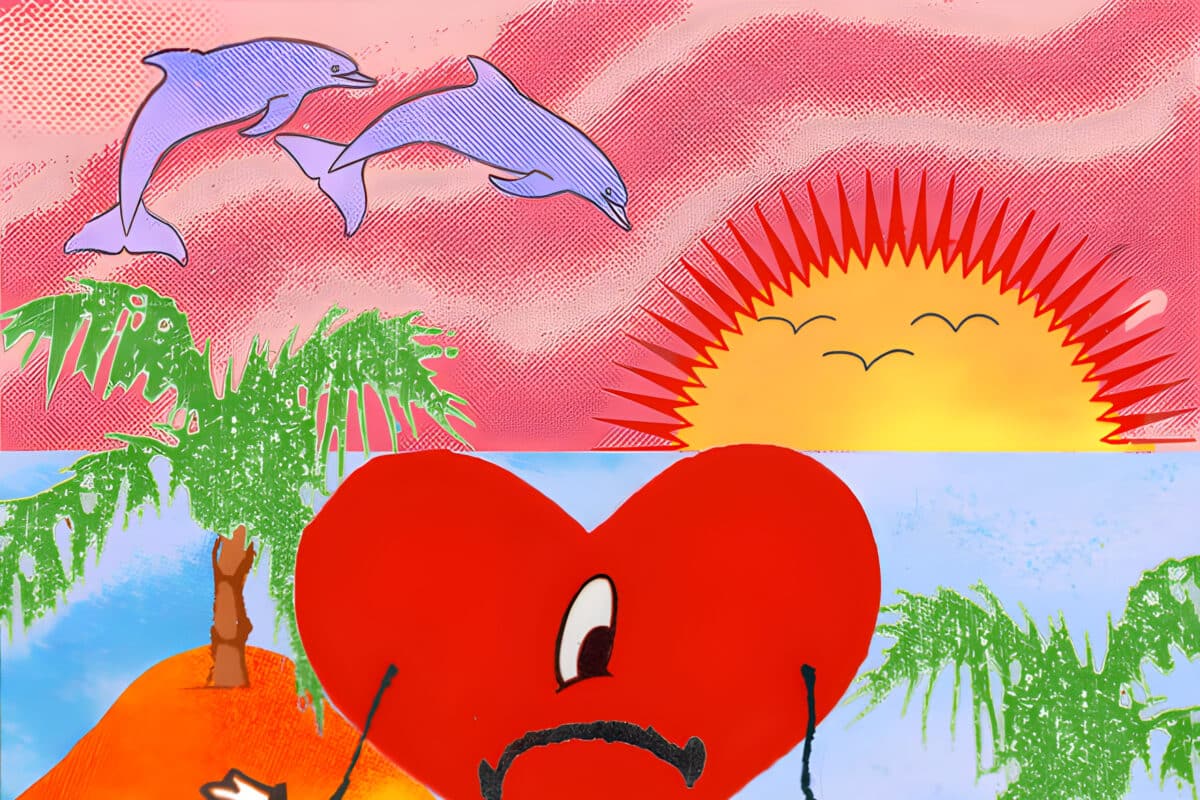Released: 2022
Bad Bunny’s “Tití Me Preguntó” dives deep into the complexities of modern relationships and self-awareness. The song balances between humor and introspection, depicting a man juggling many romantic connections while grappling with his inability to settle down. It’s a reflection on lifestyle choices and the paradoxes that come with them.
The opening lines set the stage: “Ey, Tití me preguntó si tengo mucha’ novia’.” Here, Bad Bunny’s aunt (Tití) asks if he has many girlfriends, to which he affirms, saying, “Hoy tengo a una, mañana otra,” implying he switches partners frequently. Despite this, he makes it clear, “Pero no hay boda,” there’s no commitment or wedding in sight.
The chorus continues with “Me las vo’a llevar a toa’, pa un VIP, un VIP,” where Bad Bunny talks about taking all his girlfriends to a VIP section. This brags about his status but also suggests a playboy lifestyle. He humorously adds, “Ey, saluden a Tití Vamo’ a tirarno’ un selfi, say ‘cheese’,” showing a carefree and playful attitude towards his relationships.
As Bad Bunny lists various names like “Gabriela, Patricia, Nicole, Sofía,” he paints a picture of his many romantic encounters. He even reminisces about his first love, “Mi primera novia en kínder, María,” giving a nostalgic touch to the narrative. These lines show his diverse dating life, hinting at superficial connections rather than deep bonds.
When Bad Bunny says, “Yo dejo que jueguen con mi corazón,” it shows his vulnerability, admitting he allows his heart to be toyed with. He then humorously imagines a fantasy, “Quisiera mudarme con toas pa una mansión,” suggesting he wishes he could have all his girlfriends live with him in a mansion. But he jests, “El día que me case te envío la invitación,” indicating he doesn’t take things seriously.
There’s a shift in tone later with, “Yo quisiera enamorarme Pero no puedo,” where Bad Bunny expresses his desire but reveals his incapability to fall in love due to trust issues, “Sorry, yo no confío, yo no confío, Nah, ni en mí mismo confío.” This highlights his inner conflict and self-awareness about his flaws.
The latter verses, “Mucha’ quieren mi baby gravy” and “Hazle caso a tu amiga, ella tiene razón, Yo vo’a romperte el corazón,” are raw and candid. He acknowledges that many women want his status or fame, but he warns them that he’ll break their hearts, showing a brutal honesty about his nature.
Ending with “No quiero ser así, no,” Bad Bunny reveals his remorse, wishing he weren’t this way. This final note strikes a chord, blending self-reflection with a critique on his own behavior, making “Tití Me Preguntó” a nuanced take on love and self-identity.








